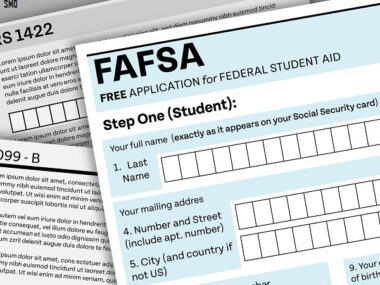For students in developing countries, a fully funded education in the UK can open doors to career advancement, global opportunities, and the chance to contribute back to their home nations. The United Kingdom offers numerous government-sponsored scholarships to international students, especially from low- and middle-income countries.
These scholarships are not only prestigious but also often fully funded, covering tuition, living expenses, and even return airfare. If you’re an ambitious student seeking world-class education and leadership development, this guide breaks down everything you need to know about UK government scholarships for developing countries in 2025.
Why Choose the UK for Higher Education?
The UK is home to some of the world’s most respected universities, including Oxford, Cambridge, Imperial College London, and the University of Edinburgh. Key reasons students from developing countries choose the UK include:
- Globally recognized degrees
- Shorter course durations (1-year Master’s programs)
- High employability and research exposure
- Strong international student support
- Post-study work options through Graduate Route visa
With generous financial aid programs, a UK degree is now within reach for many deserving students worldwide.
Top UK Government Scholarships for Developing Countries (2025)
Below are the most prominent government-funded UK scholarships available to students from developing countries.
1. Chevening Scholarships
Chevening is the UK government’s flagship international awards program funded by the Foreign, Commonwealth & Development Office (FCDO).
- Eligibility: Outstanding students from over 160 countries
- Study Level: Master’s (1 year)
- Benefits:
- Full tuition fees
- Monthly stipend
- Round-trip airfare
- Visa costs
- Arrival and departure allowances
- Key Requirement: At least 2 years of work experience (voluntary, internship, or professional)
- Deadline: Typically in November each year
The Chevening program is aimed at grooming future leaders and change-makers. Alumni include presidents, CEOs, and activists.
2. Commonwealth Scholarships
Funded by the UK Department for Education (DfE), the Commonwealth Scholarship Commission (CSC) offers postgraduate scholarships to citizens of developing Commonwealth countries.
Categories:
- Master’s Scholarships
- PhD Scholarships
- Shared Scholarships (joint with UK universities)
- Split-site Scholarships
Benefits:
- Tuition fees
- Living allowance
- Travel costs
- Research grants (for PhD)
- Family allowances (in some cases)
Fields of Study: Focus on development areas like public health, technology, sustainability, and governance.
Deadline: Usually in December (via nominating agencies or universities)
This scholarship is ideal for students committed to development work in their home countries after graduation.
3. GREAT Scholarships
This is a partnership between the British Council and UK universities. Though not always fully funded, the GREAT Scholarships offer at least £10,000 towards tuition for postgraduate studies.
- Eligibility: Students from selected developing countries (India, Nigeria, Pakistan, Kenya, etc.)
- Study Level: Master’s (1 year)
- Institutions: 30+ UK universities participate
- Deadline: April to June (varies by institution)
4. Scotland’s Saltire Scholarships
Offered by the Scottish Government in collaboration with Scottish universities.
- Amount: £8,000 towards tuition
- Fields: Science, Technology, Creative Industries, Healthcare, and Renewable Energy
- Countries: Includes India, Pakistan, Nigeria, and others
- Study Level: Master’s (1 year)
While not fully funded, this scholarship helps reduce the financial burden significantly.
Eligible Countries for UK Government Scholarships
Eligibility is often determined by country-specific development and diplomatic relations. Some common countries considered as “developing” by UK scholarship programs include:
- Nigeria
- Ghana
- Kenya
- Bangladesh
- India
- Pakistan
- Uganda
- Zambia
- Nepal
- Ethiopia
- Rwanda
- Sri Lanka
- Tanzania
- Malawi
Always check the official scholarship website to confirm if your country is eligible for that cycle.
General Eligibility Criteria
While each scholarship has its own conditions, general requirements for UK government scholarships include:
- Bachelor’s Degree: With strong academic performance
- English Language Proficiency: IELTS/TOEFL required in most cases
- Work Experience: Required for Chevening and some Commonwealth awards
- Leadership Potential: Community involvement, extracurriculars, or professional impact
- Commitment to Return: Most scholarships expect you to contribute back to your home country after studies
Required Documents
Here’s what applicants usually need to submit:
- Passport
- Academic transcripts
- Degree certificates
- Statement of purpose (SOP)
- Curriculum Vitae (CV)
- References/Recommendation letters
- Proof of English proficiency
- Work experience certificates (if required)
Application Timeline for 2025
| Scholarship | Opens | Closes |
| Chevening | Aug 2024 | Nov 2024 |
| Commonwealth | Sept 2024 | Dec 2024 |
| GREAT | Varies | May–June 2025 |
| Saltire | Spring 2025 | June 2025 |
Start preparing documents at least 3–4 months before the application window.
How to Improve Your Chances
1. Start Early
Avoid rushing through your application. Early prep ensures quality.
2. Craft a Powerful SOP
Tell your story. Explain your academic journey, career goals, and how the UK will help you make a difference.
3. Show Community Engagement
Highlight volunteer work, leadership roles, or entrepreneurial projects.
4. Get Strong References
Ask professors, mentors, or supervisors who know you well to write impactful letters.
5. Tailor Your Application
Customize your application for each scholarship—don’t copy-paste.
Frequently Asked Questions (FAQs)
Q: Can I apply for more than one scholarship?
Yes, you can apply to multiple UK government scholarships. However, you can only accept one.
Q: Are these scholarships fully funded?
Chevening and Commonwealth often are. Others like GREAT and Saltire are partially funded.
Q: Can I work while studying in the UK?
Yes. As an international student, you can work up to 20 hours per week during term time.
Q: Do I need IELTS?
In most cases, yes. Minimum scores usually range from 6.5–7.0 depending on the program.
Where to Find More Opportunities
- https://www.chevening.org/
- https://cscuk.fcdo.gov.uk/
- https://study-uk.britishcouncil.org/scholarships
- https://www.scotland.org/study/saltire-scholarships
Also check university-specific sites. Schools like Oxford, Cambridge, Warwick, and Bristol offer additional scholarships for students from developing countries.
After Graduation: What Next?
Many UK government scholarships include conditions that require you to return to your home country or use your skills to contribute to national development.
Others allow you to apply for the Graduate Route, a 2-year post-study work visa, offering time to gain experience in the UK.










